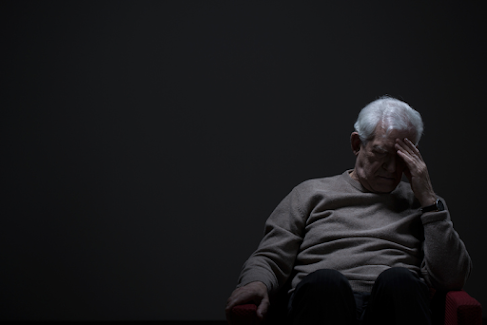Senior depression is more common than you might realize, and it can also be more difficult to diagnose because the symptoms can be incorrectly attributed to other illnesses, or medication side effects. Common conditions like insomnia can put older adults at higher risk for developing depression, so it’s important that you’re able to recognize potential signs of senior depression in your loved ones.
How Does Depression in Seniors Differ From Depression in Younger Adults?
Because seniors often have more complex health needs than younger people, depression affects them differently, and usually more severely. When older adults are recovering from an illness or an injury and they experience depression, it can interfere with their recovery and slow down their progress. For example, a senior who has mobility issues due to an injury and needs assistance walking around, who also has depression, may have a more difficult time recovering due to compounding symptoms.
The signs of depression in seniors may not be immediately obvious. They might feel tired, experience insomnia, move more slowly than usual, lose interest in activities they used to enjoy, or have changes in their weight and appetite. Many of these symptoms are commonly associated with getting older in general, so depression may not come to mind immediately.
How Is Insomnia Related to Depression in Older Adults?
For seniors, insomnia is usually a symptom of depression. Seniors who are diagnosed with insomnia are also at greater risk for developing new depression, or having their depression return. If your older loved one is having prolonged problems sleeping or you don’t think they’re getting enough sleep every night, it’s worth speaking with their doctor.
While there are various medications doctors prescribe to help people sleep, often experts prefer to treat insomnia in seniors using melatonin or low-dose antidepressants. Many of the commonly-prescribed sleep medications like Lunesta can be too strong for older adults.
Seniors at High Risk for Depression
Certain demographics are at a higher risk for developing depression, including women, people who are single, widowed, or divorced, and those who are lacking in social support, like a network of friends. Seniors who have gone through very stressful events, like grieving the recent loss of a loved one, and those who have a history of substance abuse are at a higher risk for developing depression.
Seniors who have a family history of depression, or physical conditions that can put them at a higher risk, including strokes, dementia, cancer, chronic pain, hypertension, and diabetes can increase the likelihood of developing depression. Our health and mobility changes a lot as we age, and it can be difficult to come to terms with our new reality, especially for those who have always been fiercely independent.
If you have any questions about how to help a senior in your life who you suspect is suffering from depression, or if you’d like more information, please contact our team at UMC today. We look forward to hearing from you.
Original blog posted on https://umcommunities.org/blog/senior-depression-signs/

No comments:
Post a Comment